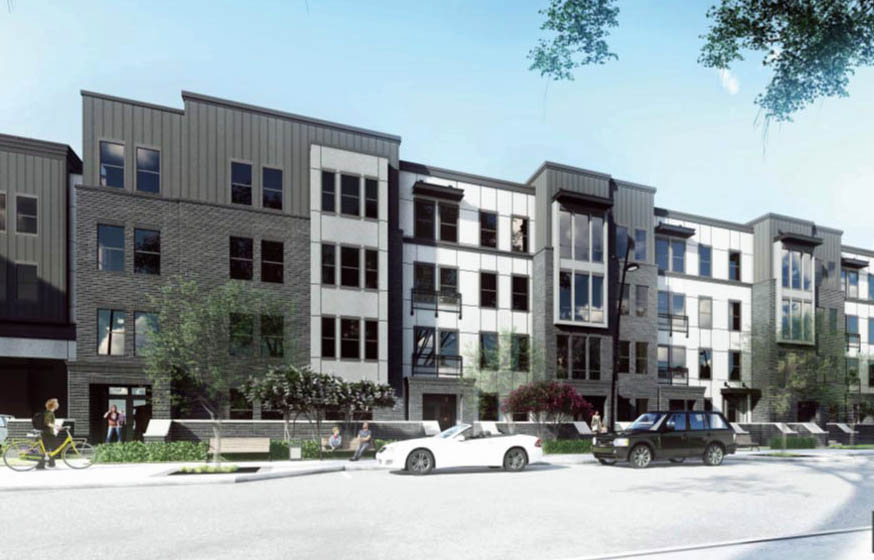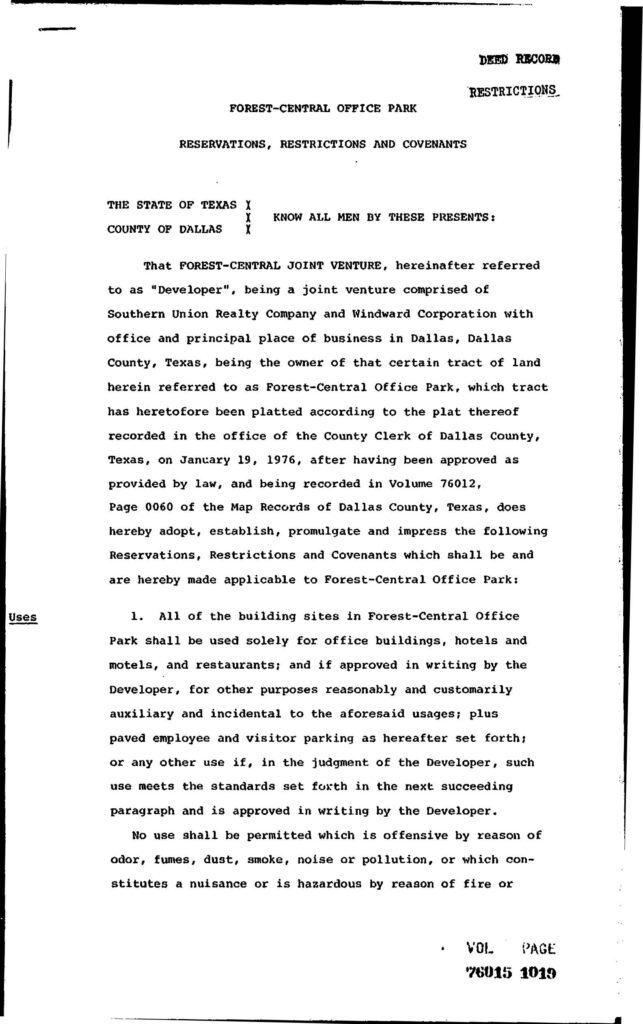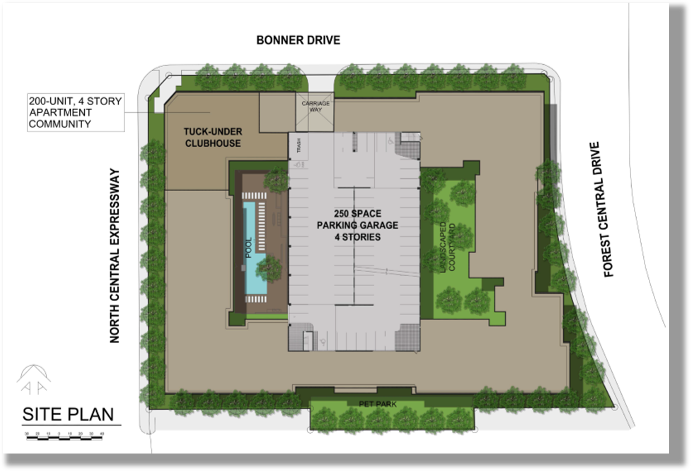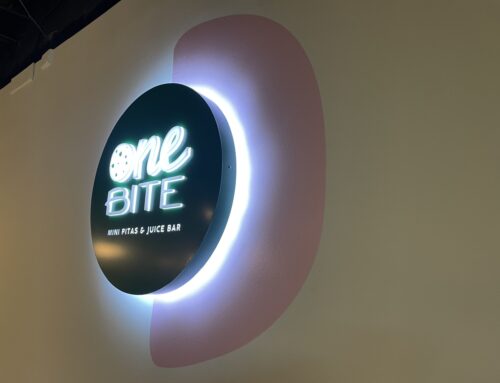The proposal to build Cypress Creek at Forest Lane, an affordable housing development at 75 and Forest Lane, was tabled by the Dallas Public Facility Corporation Tuesday. The board is expected to reconsider the plan next month.
A few of the board’s 15 members, including former councilmember Mary Poss, expressed strong opposition to the plan. A few, including District 11’s Alan Tallis, voiced strong support. District 10 rep Mark Holmes, who rallied the board around his motion to delay, urged the developer to go back to the community for more discussion and engagement.
Developer Zachary Krochtengel of Sycamore Strategies presented his plan to sell 2.85 acres at 11520 North Central Expressway to the City of Dallas and the DPFC, then lease the property back to build and manage a mix of 189 market rent and affordable units. He cited the need for affordable housing in job-rich, high-opportunity zones of the city — especially North Dallas. Although the immediate Forest/75 area and greater Lake Highlands have large numbers of inexpensive housing units, most landlords refuse to accept Walker Vouchers, he said. These Dallas Housing Authority vouchers resulted from settlement of the 1985 Walker v. HUD lawsuit involving Dallas public housing desegregation and are designed to provide housing for those in great need. Most Walker Vouchers go unused, he said, and many people in Dallas simply want somewhere to live with access to work, transportation and services.
Krochtengel acknowledged encountering significant opposition from neighbors in Hamilton Park, Stults Road and Northwood Estates when he originally proposed Cypress Creek in 2021. The project was approved by a Dallas City Council vote of 13-2 and later received 9% low-income tax credit (LIHTC) financing from the Texas Department of Housing and Community Affairs.
Much of the DPFC board’s discussion Tuesday centered around Sycamore’s plan to sidestep longstanding private deed restrictions, which permit only office buildings, hotels, motels and restaurants. The area’s entire 30-acre parcel had originally been party to the 1976 restrictions, but, over time, Home Depot, Academy and National Tire and Battery were allowed, along with a tire shop, used car dealer and car wash. Since the original parties are no longer involved, it’s not clear whether the developer permitted these alternate uses or whether business owners then party to the restrictions voted them in.
Former councilmember Philip Kingston, representing Sycamore, said bringing the City of Dallas in on the deal will trigger sovereign immunity to override the restrictions.
“The restrictive covenants are voidable as against public policy,” he told the board, likening the deed restrictions to many used in Dallas and around the county to keep “undesirable” persons from moving into neighborhoods. Such racial covenants are no longer valid, but some remain on the books around the country. Affordable housing is a strong public purpose and trumps private deed restrictions, Kingston said. Krochtengel said case law favored his position, but acknowledged that funds were in the project’s budget for a potential “inverse condemnation” lawsuit resulting from ignoring the deed restrictions. Inverse condemnation occurs when a government takes a property for public use that greatly damages the value of the plaintiff’s property.
The board heard from a long list of community commenters — some urging them to deny Sycamore’s request and some asking for approval of Cypress Creek and other affordable housing projects in North Dallas.
“It’s just wrong to continue to concentrate this housing in high minority and high poverty areas,” said Ann Lott, executive director of Housing Mobility. “I know the NIMBY voices are loud. I know this is a heavy lift for you and possible political suicide, but the families who need this housing need you to act on their behalf.”
The board’s delay is likely to push the project beyond its current March 8 date on the city council agenda.








